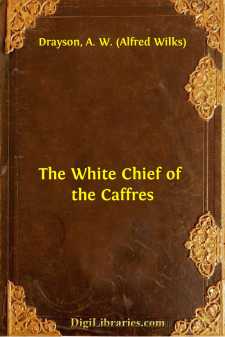Fiction
- Action & Adventure 180
- Biographical 15
- Christian 59
- Classics
- Coming of Age 5
- Contemporary Women 3
- Erotica 8
- Espionage/Intrigue 12
- Fairy Tales, Folklore & Mythology 236
- Family Life 169
- Fantasy 117
- Gay 1
- General 596
- Ghost 32
- Historical 808
- Horror 43
- Humorous 160
- Jewish 25
- Legal 4
- Medical 22
- Mystery & Detective 315
- Political 49
- Psychological 41
- Religious 64
- Romance 159
- Sagas 11
- Science Fiction 730
- Sea Stories 113
- Short Stories (single author) 537
- Sports 10
- Suspense 1
- Technological 8
- Thrillers 2
- Urban Life 31
- Visionary & Metaphysical 1
- War & Military 173
- Westerns 199
Classics Books
Sort by:
CHAPTER I THE HOBO AT CHAZY JUNCTION Mr. Judkins, the station agent at Chazy Junction, came out of his little house at daybreak, shivered a bit in the chill morning air and gave an involuntary start as he saw a private car on the sidetrack. There were two private cars, to be exactвÐâa sleeper and a baggage carвÐâand Mr. Judkins knew the three o'clock train must have left them...
more...
CHAPTER I FEROZEPORE The actual Mutiny of the Bengal army broke out at Meerut on May 10, 1857. Events had happened in the Lower Provinces which foreshadowed the coming storm, and one regiment of native infantry had been disbanded; but no one, not even those in high authority, had the faintest suspicion that our rule in India was imperilled. So strong, indeed, was the sense of security from present...
more...
CHAPTER I THE MINER'S REASONS A furious blizzard was raging. Six or eight miners of various ages were huddled around the stove in a little road-house where they were likely to remain storm-bound for several days. "Chuck some more wood into that bloomin' fire and fill up my pipe if you fellers want a yarn from me," said one, when they had besieged him for a story with which to pass the...
more...
by:
Fannie Hurst
I BITTER-SWEET Much of the tragical lore of the infant mortality, the malnutrition, and the five-in-a-room morality of the city's poor is written in statistics, and the statistical path to the heart is more figurative than literal. It is difficult to write stylistically a per-annum report of 1,327 curvatures of the spine, whereas the poor specific little vertebra of Mamie O'Grady, daughter to...
more...
by:
Various
hen in 1814 Napoleon was overthrown and exiled to Elba, the British troops that had followed Wellington into southern France were left free for use against the Americans. A great expedition was organized to attack and capture New Orleans, and at its head was placed General Pakenham, the brilliant commander of the column that delivered the fatal blow at Salamanca. In December a great fleet of British...
more...
by:
Wilfrid Ward
CHAPTER I The memorial service for Sir David Bright was largely attended. Perhaps he was fortunate in the moment of his death, for other men, whose military reputations had been as high as his, were to go on with the struggle while the world wondered at their blunders. It was only the second of those memorial services for prominent men which were to become so terribly usual as the winter wore on. Great...
more...
by:
Various
When war was declared on Germany April 5th, 1917, the government sent out calls for volunteers. The auxiliary organizations were to be the first ones to go across, and it looked as if ambulance companies would be among the first to get into action. Many of the universities and colleges in the east started at once to organize ambulance companies. These companies were quickly filled, and the enthusiasm...
more...
Chapter One. I was born in the city of Delhi, in Central India, where my father held a command as major in the old East India Company’s service. I was an only son, and my mother died shortly after I was born. I resided at Delhi until I was ten years of age. Having been attended as a child by an ayah, and afterwards taught to ride by one of my father’s syces, I learned to speak Hindostani before I...
more...
by:
James De Mille
. PARIS.--THE DODGE CLUB.--HOW TO SPEAK FRENCH.--HOW TO RAISE A CROWD. ILLUSTRATIONS. Dick!--Here I Invite My Friends.--The Club.--The Place Vendôme.--Keep It Buttons! . ORLEANS.--HOW TO QUELL A LANDLORD.--HOW TO FIGHT OFF HUMBUGS; AND HOW TO TRAVEL WITHOUT BAGGAGE. ILLUSTRATIONS. That's A Hotel Bill.--Cicero Against Verres. --Sac-r-r-r-ré. . THE RHONE IN A RAIN.--THE MAD FRENCHMAN.--SUICIDE A...
more...
by:
Edward Bartrum
THE BOOK OF PEARS AND PLUMS History of the Pear The Pear is my theme, and a pleasant one it is. Only those who have planted trees, pruned them, watched their growth, plucked the fruits, enjoyed them at almost all hours, seen them on the table month after month as an appetising dish, can fully realise the value of the Pear. A good Pear-tree is like a faithful friend—treat him properly and he will not...
more...











